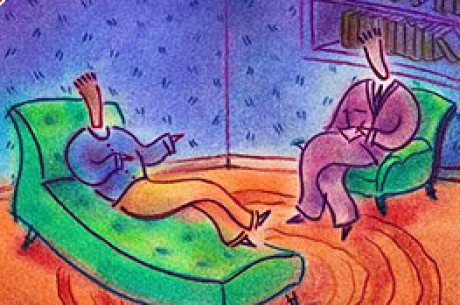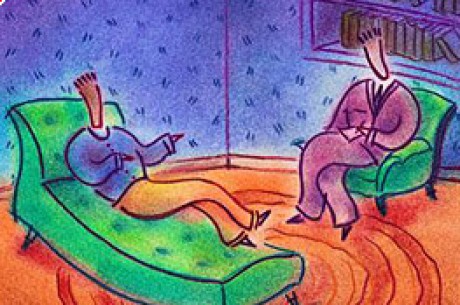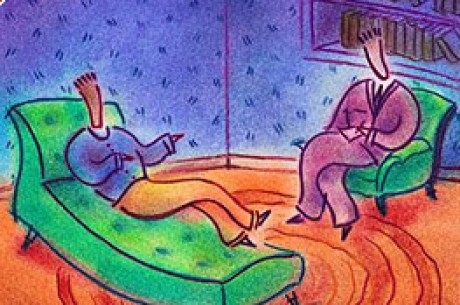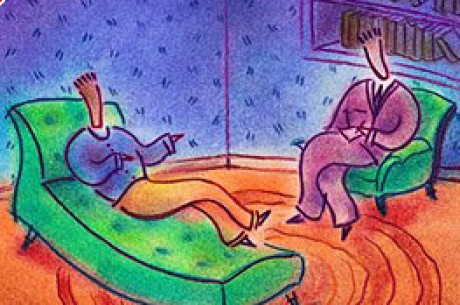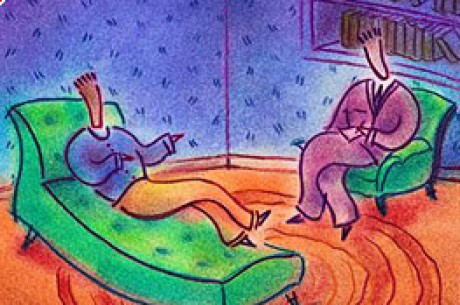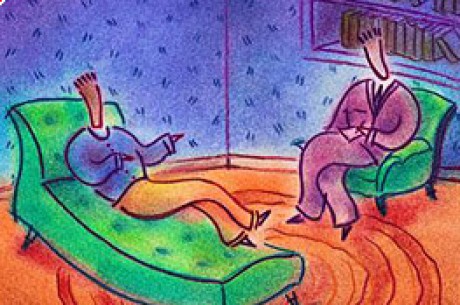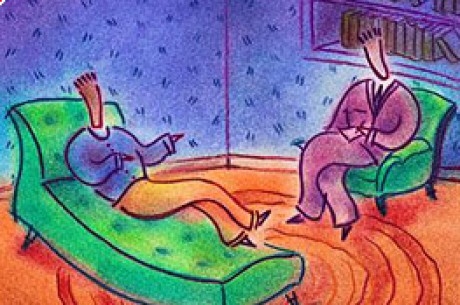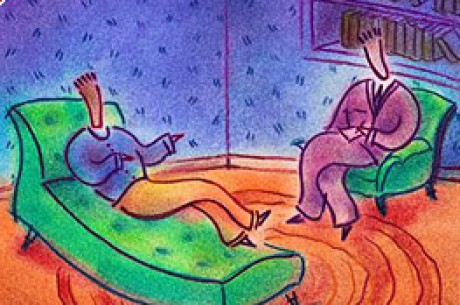The Poker Counselor's Corner (26)

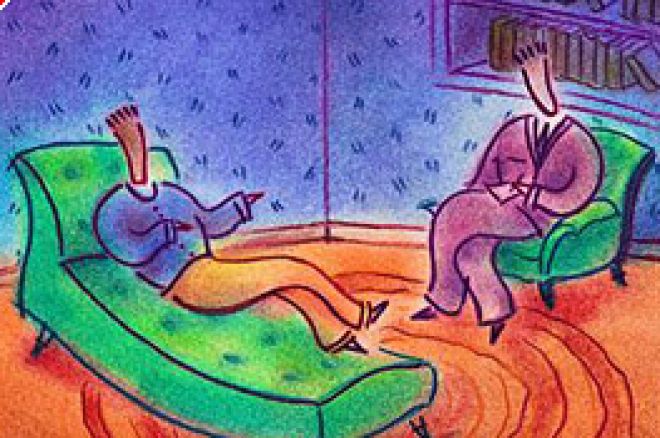
Editor's Note: In addition to being a poker enthusiast, gambling columnist, and lecturer, John is a National Certified Counselor (NCC). He has a Master of Arts degree in Counseling from West Virginia University, and a Bachelor's degree in Psychology with a minor in Sociology from Lock Haven University. You can arrange for interviews, speaking engagements, or ask your question to "the Poker Counselor" at [email protected].
This game drives me crazy. Sometimes I play my absolute best and lose all my money. Other times I play like crap and still make a profit. You never know, I guess. - Posted at an online forum by PokMe
Experienced poker players understand that poker is a fickle game. We can't control some unlucky cards, but we can control ourselves and our own play. In the long run, your goal should be to pull a profit. You're looking to get a nice payback in terms of your time - an acceptable $$ per hour rate, for instance. In the short term (especially a single playing session), you should know that good, solid play does not necessarily equate to a winning session. I always challenge players to remember why they play the game. For a majority of us that are not professional poker players, our poker motivation is ego-driven more than financially driven. We are looking to beat our opposition. We enjoy the sense of superiority, of power, of intelligence, of cunning, and of pure human competition. The cash that we win is only a nice side effect of that emotional quest. To display this point, answer the following question: Would you rather outplay Johnny Chan for a small pot or get outplayed but catch your lucky 1-outer on the River to win a big pot? True pros want the cash, so they'd always take the money. Ego players (don't read ego players as a negative, think confidence players) would always rather outplay the legendary pro. So, what I am getting at is forget about measuring individual sessions via the money that you take from the table. While it is true that we play to win, we are playing to be our best. We are playing to become great. Thus, evaluation is best done via closely inspecting your play, your emotions, your reads, your instincts, and your reactions.
Unfortunately, I am one of those gamblers that have to stay at home and play online because I just can't get out to actual casinos. Recently, I watched Howard Lederer's DVD and there was a segment on poker "Tells" which I found really interesting. I have a Psych degree and have been in sales for 15 years and can certainly tell when someone is feeding me a line of garbage. 9 times out of 10 I go with my gut's first instinct and never change it. Yet, I am lacking the general understanding of the "basic" human tell signs. Ideally I would like to be able to confirm my gut feeling with an actual human tell "leaning back in a chair", "looking the other when he or she lays a bet". Are their any other basic tells? If so what are they? — emailed by Renick M, Norwalk CT
You are well on your way. You are gaining confidence in your "gut" instincts, trusting those most of the time. You are studying poker and thinking poker. You're searching to challenge your assumptions, hone your skills. And widen your knowledge base. For that, I commend you. I'm betting you'll continue to grow as a player if you continue on this measured track.
Back to the question at hand ---- tells. This is a common question, but not an easy answer. In fact, I'm often guarded about tossing out any of the "regulars" such as flared nostrils, the pulsing vein in the neck, and sitting up stiffly in the chair. You see, tells are not usually so regimented and clear. I've been lucky enough to have interactions with Daniel Negreanu over the past few years. He's a guy that I admire very much at the tables and away from them. In an article entitled "The Truth about Tells" which once was linked on his website at fullcontactpoker.com, he wrote: "I'm going to let you in on a little secret here. If you believe that watching for a twitchy eye or a flared nostril is what poker is all about - you're quite wrong. Many poker players (mainly those who are new to the game) are preoccupied with the notion that bluffing and the ability to discover tells are what it's all about." I quote him because I can't say it better myself. Physical tells are one of the most overrated aspects of poker. You see, there is no definitive handbook on human reactions and actions. While a bluff may cause the autonomic nervous system to uncontrollably dilate the eyes, a glance at pocket Aces may do the same. Heck, maybe the pupil change is from the side effects of the medications the player is taking! What great players really do is sense a player's emotions. Are they comfortable with their hand and/or position? If not, they are bluffable. Are they truly confident in their hand, or are they feigning confidence while total fear dances below the surface. Only the weakest of players will exude the physical tells that the books and magazines list. To beat the best, you must look deeper within.
I think you are looking for ultimate validation. Your question implies something such as, "If I think he's weak via my instincts, is there a definitive sign such as a hand twitch or eye shift that will assure me he IS weak." With experience, you will indeed see such involuntary clues that opposition may leak. Those clues will combine with your initial instinct to produce the read. Once a player is read, he's yours. It is a complex mental puzzle that must be worked to be put together. The problem is that each layer is unique, as all humans are unique. So, nobody can honestly say that movement "X" always means a bluff. Poker is not that easy. If it was, I guess it would not be quite as challenging and intriguing. Instead, of thinking "eye twitch = bluff," you need to think "what does that eye twitch mean for this guy in his current table position with his chip stack and how did he play in the past hands and ......" You get the idea
KEEP THE QUESTIONS COMING!!! [email protected]
Ed Note: Poker Stars have our highest rated tournaments, find out why

